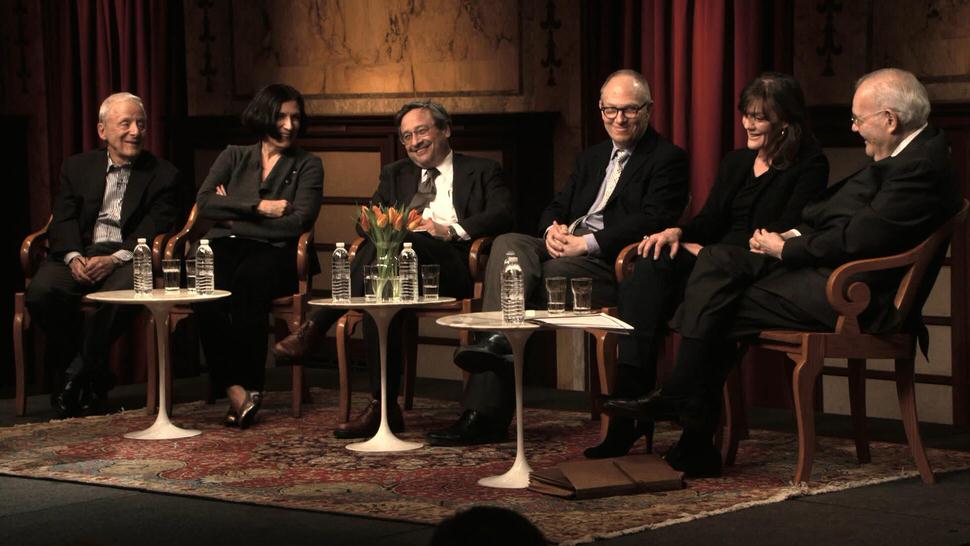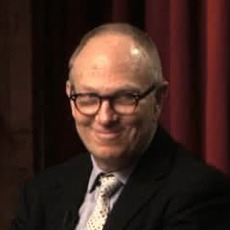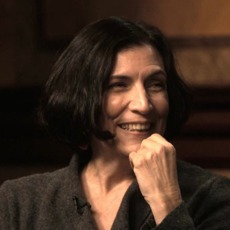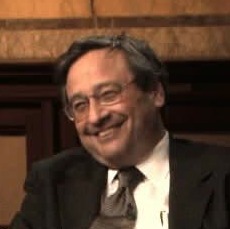On April 3, 2013 The New York Review of Books and the Cullman Center for Scholars & Writers at the New York Public Library presented a panel discussion celebrating the Review’s 50th anniversary. Five regular contributors discussed their careers, their experience writing for editors Robert Silvers and Barbara Epstein, and their predictions and hopes for the future of literary journalism. We are pleased to present the excerpts below from this program.
Ian Buruma, who began writing for The New York Review in 1985 (“by sheer bluff”) and has since published well over a hundred pieces in its pages, opened the discussion by asking about the future of editing:
The question tonight, really, is how the Review’s kind of journalism and editing will pan out in the future, whether there is still a space for it … It’s not really where are the writers going to come from. There’s always going to be people who will want to write and who can write. I’m not so pessimistic that there won’t be any readers, either. The question is where are the gatekeepers of writing—the people who select, who guide, who form, who turn wooly writing into clear writing and so on—where are they going to be?
Joseph Lelyveld, a former correspondent and executive editor of The New York Times, talked about the process of working on a piece for the Review:
Writing for Bob is a very interesting experience because you know he’s reading ahead of you and thinking ahead of you all the time. You agree to review a book and then suddenly a packet of articles appears with a little note saying, “These may be of interest to you,” or “Perhaps you will find these helpful.” Sometimes it can get to be a little irritating, because he’ll start sending you primers on subjects you’re supposed to know about, as if he’s forgotten why he asked you to do it in the first place.
Zoë Heller spoke of her many years not writing for the Review, including two spent on an island in the Caribbean:
Every month or so, a package would arrive at the little pink post office. And the locution that really sticks in my mind from the standard letter that Bob will send is “I hope you will find that something can be done.” I so love that sentence, I often use it around my house. I’ll go into my 13-year-old’s disgusting room and say, “I hope you’ll find that something can be done.” A boyfriend is misbehaving: “I hope you’ll find that something can be done.” I grew up in what used to be called Fleet Street. On a Friday night, some surly, senior hack would come to me and say, “Bjorn Borg’s getting married again. You must write a retrospective for tomorrow. Here’s the clippings file. Concentrate on the sex.” And on those days, you’d write on a big old fashioned computer and the guy would hack into what you were writing while you were writing it and give comments: “[Very boring-ED] [Get to the sex quicker—ED].” So naturally when I finally bit the bullet and starting writing for Bob, I feel as if I’ve entered paradise.
Alma Guillermoprieto, whose reviews and reporting from Latin America have appeared regularly in the Review since 1994, spoke about the importance of “the editorial perception of the world”:
I don’t think we’re going to create the new forms of journalism. That is going to be the creation of people who are growing up with the internet as their natural medium. However, I do think that a great many things that have already been mentioned this evening will survive and have to survive. First and most importantly, the editorial mind.… We continue to write for the Review because we writers want an editor who we will trust, who will make you relax, and feel that your writing is respected, that the ideas you have are respected. Who will provide an opportunity for you to be at your best. And goad you into being your best. That editorial mind, in my experience, is unique in our times. There won’t be another one but there will be another, different, equally important one.
Andrew Delbanco, chair of American Studies at Columbia, paid tribute to several editors who helped him shape his own work, including the late Barbara Epstein:
A theme, at least to my ears, already emerging is that of the intensely personal relation between a writer and an editor. Which I actually think of as a relation quite like that of student and teacher. Barbara, who sadly can’t be here to join us for this celebration, had the most extraordinary bedside manner of any editor I’ve ever known. She would make you feel very relaxed about what you had submitted and would talk positively about it. And then there would be a pause, and she would say something like, “Now there was just one teeny, weeny little matter I wanted to raise with you.” And by the time she finished with the teeny, weeny little matter, you realized, in fact, that this was a glaring, humongous mistake that you had made, and you had essentially to tear your piece apart and go back to the beginning.







